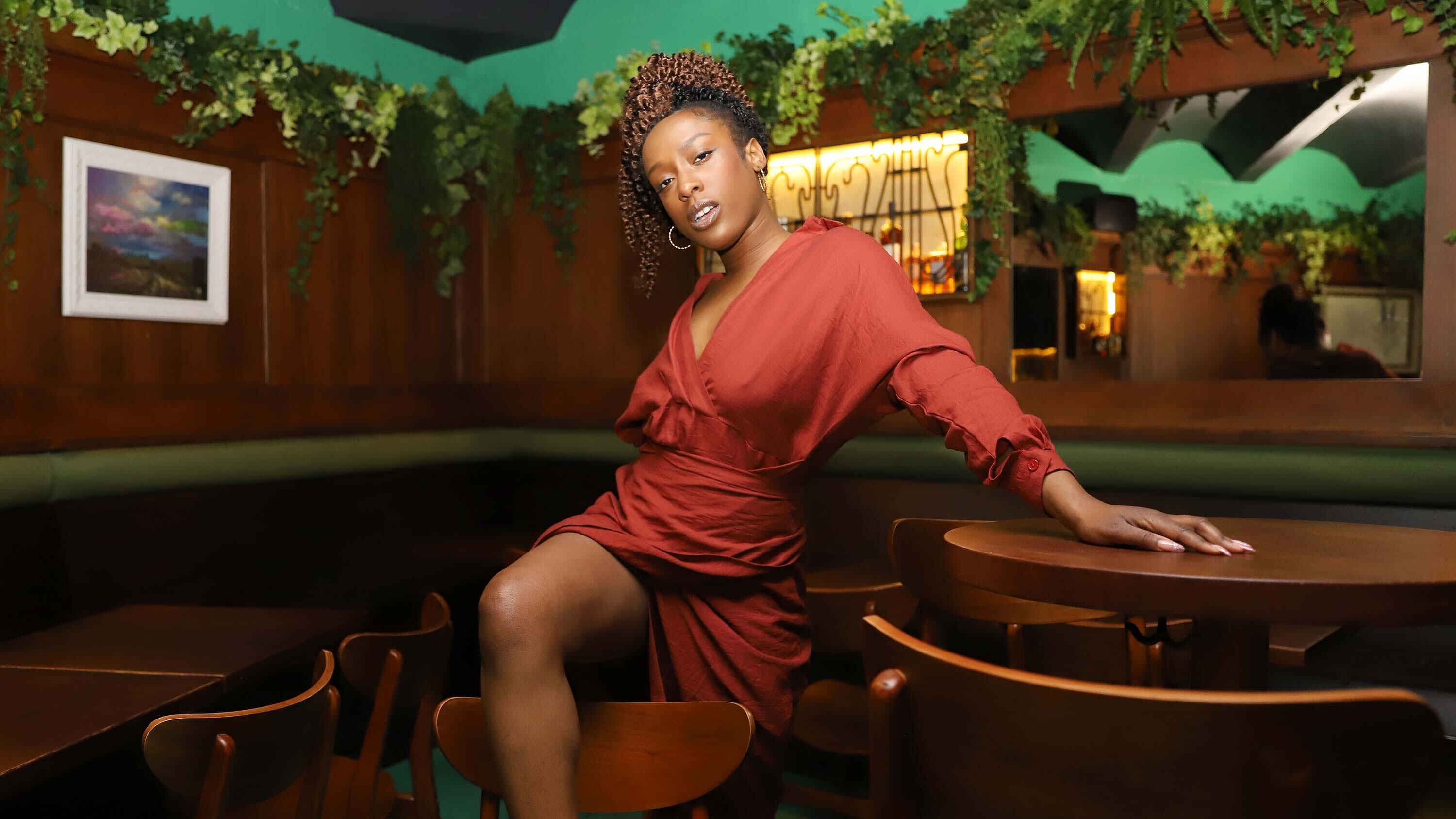Keisha Chiddick didn’t plan to become the co-owner of a farm. She just hoped to find some weed.
On a Saturday night last February, Chiddick, better known as Portland soul singer Blossom, was at Doug Fir to check out L.A. violinist Sudan Archives, whom she befriended at Pickathon last summer. While looking for cannabis for her fellow musician, Chiddick saw a stranger in the crowd who looked as if he could help.
“I saw Alex in the audience dancing like the hippie he is,” she says. “I don’t ever ask anybody for things like that, just because some people might be offended, but he looked like such a wholesome person.”
Not only did he have weed to share, Alex VanOutryve turned out to be the owner of Sanctuary Farms in Dallas, Ore., and happened to be looking for someone to run a radical food justice CSA focused on giving free and reduced-price produce to BIPOC Portlanders.
Though Chiddick had never worked in agriculture before, she turned out to be a perfect fit. She had gained practice connecting with communities through food at her family’s Caribbean restaurant in Washington, and her upbringing in Trinidad and Tobago also influenced her views on food justice.
“I grew up in a Third World country,” she says. “I know that poor people aren’t sad people, and they’re not poor in the way they feel life and the ways they want to help each other.”
Only a few months after Chiddick took over as co-operations manager with Andrea Celeste, Sanctuary Farms now feeds about 100 Portlanders, only 35 of whom are paying CSA members. Along with the free and reduced-price produce boxes that Sanctuary gives out to BIPOC Portlanders each week, Sanctuary donates produce to other food justice organizations, including Crisis Kitchen.
Sanctuary is currently building a walk-up outpost in the Eastside Industrial District, and hopes to raise enough donations to hire more Black farmers and start educational programs. But for now, the weekly produce deliveries are the most fulfilling part of Chiddick’s work.
“I love to give gifts, and that is what it is,” she says. “You feel like you’re giving them a gift because of the way they react to it, and it’s such a natural and normal thing that people should have access to.”
Click below to see more Best of Portland 2020:

